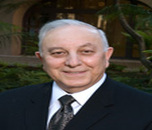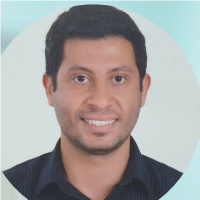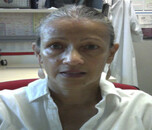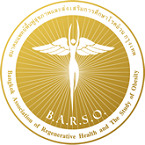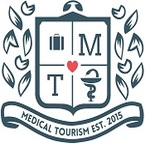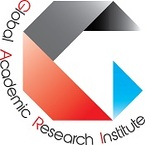Sessions/Tracks
Track 01: General Surgery
General surgery encompasses a broad range of procedures involving the abdomen, digestive tract, skin, soft tissues, and more. It includes operations such as appendectomies, hernia repairs, and gallbladder removals. General surgeons are skilled in preoperative, operative, and postoperative care, working closely with other specialties. With advancing technology, the field integrates modern techniques like laparoscopy and enhanced imaging for precision. General surgery serves as a foundation for many subspecialties and plays a crucial role in trauma care and emergency medicine. Continuous education ensures surgeons adapt to new methods, improving safety, outcomes, and recovery for patients globally.
Surgery Conferences | Surgery Conferences 2026 | Surgery Meetings | Surgery Events | ENT Conferences | Surgery Conferences 2026 | Anaesthesia Conferences | Anaesthesia Congress | Surgery Meetings | Surgery 2026 | Surgery Symposium | Online Surgery Conferences | Surgery Webinars
Track 02: Pediatric Surgery
Pediatric surgery is a specialized branch that focuses on the surgical treatment of infants, children, and adolescents. It addresses congenital malformations, developmental abnormalities, and acquired conditions. Common procedures include hernia repairs, appendectomies, and correction of birth defects. Pediatric surgeons require unique skills and equipment tailored to the anatomical and physiological differences of young patients. They collaborate with pediatricians and other specialists to ensure holistic care. Minimally invasive techniques and advances in anesthesia have significantly improved safety and recovery times. Emotional sensitivity and family-centered care are crucial, making pediatric surgery not only technically challenging but also emotionally rewarding.
Surgery Conferences | Surgery Conferences 2026 | Surgery Meetings | Surgery Events | ENT Conferences | Surgery Conferences 2026 | Anaesthesia Conferences | Anaesthesia Congress | Surgery Meetings | Surgery 2026 | Surgery Symposium | Online Surgery Conferences | Surgery Webinars
Track 03: Minimally Invasive Surgical Techniques
Minimally invasive surgical techniques, including laparoscopy and endoscopy, involve performing operations through small incisions using specialized instruments and cameras. These procedures reduce tissue damage, pain, and recovery time compared to traditional open surgeries. Benefits include shorter hospital stays, reduced infection risk, and faster return to normal activities. Commonly used in abdominal, thoracic, and orthopedic surgeries, these techniques are increasingly adopted across surgical disciplines. Technological advancements such as high-definition imaging and precision tools enhance surgical accuracy. As patient demand grows for less invasive options, ongoing innovations continue to transform the surgical landscape, improving outcomes and overall healthcare efficiency.
Surgery Conferences | Surgery Conferences 2026 | Surgery Meetings | Surgery Events | ENT Conferences | Surgery Conferences 2026 | Anaesthesia Conferences | Anaesthesia Congress | Surgery Meetings | Surgery 2026 | Surgery Symposium | Online Surgery Conferences | Surgery Webinars
Track 04: ENT Surgery
ENT (Ear, Nose, and Throat) surgery, or otolaryngology, addresses disorders of the head and neck region, including hearing loss, sinus diseases, voice problems, and head and neck cancers. Procedures range from tonsillectomies and septoplasties to complex surgeries like cochlear implants and skull base surgeries. ENT surgeons often use endoscopic and microscopic techniques for enhanced precision and minimal invasiveness. The specialty requires a deep understanding of delicate anatomical structures and multidisciplinary collaboration. Advances in imaging, laser technology, and robotic systems have improved diagnostic accuracy and surgical outcomes. ENT surgery plays a vital role in restoring vital sensory and communicative functions.
Surgery Conferences | Surgery Conferences 2026 | Surgery Meetings | Surgery Events | ENT Conferences | Surgery Conferences 2026 | Anaesthesia Conferences | Anaesthesia Congress | Surgery Meetings | Surgery 2026 | Surgery Symposium | Online Surgery Conferences | Surgery Webinars
Track 05: Enhanced Recovery After Surgery
Enhanced Recovery After Surgery (ERAS) is a multidisciplinary care approach aimed at improving surgical outcomes and reducing recovery time. ERAS protocols include preoperative counseling, optimized nutrition, minimally invasive techniques, effective pain management, and early mobilization. This evidence-based strategy reduces postoperative complications, hospital stays, and healthcare costs. ERAS is applied across various surgical specialties, including colorectal, gynecologic, and orthopedic surgery. By standardizing care and focusing on patient well-being, ERAS empowers patients in their recovery journey. The collaborative model involves surgeons, anesthesiologists, nurses, and physiotherapists, emphasizing a holistic, patient-centered approach to surgical care and recovery.
Surgery Conferences | Surgery Conferences 2026 | Surgery Meetings | Surgery Events | ENT Conferences | Surgery Conferences 2026 | Anaesthesia Conferences | Anaesthesia Congress | Surgery Meetings | Surgery 2026 | Surgery Symposium | Online Surgery Conferences | Surgery Webinars
Track 06: Surgical Management of Obesity
The surgical management of obesity, or bariatric surgery, offers effective long-term weight loss and improvement in obesity-related conditions such as type 2 diabetes, hypertension, and sleep apnea. Common procedures include gastric bypass, sleeve gastrectomy, and adjustable gastric banding. These surgeries alter the digestive system to limit food intake or absorption. Bariatric surgery is recommended for individuals with severe obesity who have not achieved results through diet and exercise alone. It requires comprehensive evaluation, lifestyle changes, and long-term follow-up. Advancements in laparoscopic techniques have made procedures safer with faster recovery. The impact extends beyond weight loss to enhanced metabolic health.
Surgery Conferences | Surgery Conferences 2026 | Surgery Meetings | Surgery Events | ENT Conferences | Surgery Conferences 2026 | Anaesthesia Conferences | Anaesthesia Congress | Surgery Meetings | Surgery 2026 | Surgery Symposium | Online Surgery Conferences | Surgery Webinars
Track 07: Surgical Treatment of Cancer
Surgical oncology involves the removal of tumors and cancerous tissues to achieve local control of the disease, often in conjunction with chemotherapy and radiation. It is used both for curative and palliative purposes across various cancers, including breast, colorectal, and lung. Advances in imaging, minimally invasive techniques, and intraoperative navigation have improved precision and outcomes. The goal is complete tumor excision with minimal impact on healthy tissues. Surgical margins and lymph node assessment are critical for staging and prognosis. Multidisciplinary care ensures personalized treatment planning. Surgery remains a cornerstone in cancer management, offering hope and extended survival for many patients.
Surgery Conferences | Surgery Conferences 2026 | Surgery Meetings | Surgery Events | ENT Conferences | Surgery Conferences 2026 | Anaesthesia Conferences | Anaesthesia Congress | Surgery Meetings | Surgery 2026 | Surgery Symposium | Online Surgery Conferences | Surgery Webinars
Track 08: Robotic Surgery
Robotic surgery uses computer-assisted robotic systems to perform complex procedures with enhanced precision, control, and flexibility. The most widely used system, the da Vinci Surgical System, allows surgeons to operate through tiny incisions using robotic arms controlled from a console. Benefits include smaller incisions, reduced blood loss, less postoperative pain, and quicker recovery. Robotic surgery is applied in urology, gynecology, cardiac, and general surgery. It enhances visualization with 3D imaging and filters hand tremors for improved accuracy. As the technology evolves, robotic surgery is expanding its reach, transforming traditional surgical practices and improving patient outcomes.
Surgery Conferences | Surgery Conferences 2026 | Surgery Meetings | Surgery Events | ENT Conferences | Surgery Conferences 2026 | Anaesthesia Conferences | Anaesthesia Congress | Surgery Meetings | Surgery 2026 | Surgery Symposium | Online Surgery Conferences | Surgery Webinars
Track 09: Artificial Intelligence in Surgical Planning
Artificial Intelligence (AI) is revolutionizing surgical planning by analyzing large datasets, imaging, and patient-specific factors to assist in decision-making and predicting outcomes. AI tools can identify anatomical landmarks, assess surgical risks, and suggest optimal approaches. In preoperative planning, AI enhances precision in tumor mapping, implant design, and minimally invasive strategies. Machine learning algorithms continuously improve from real-world data, providing personalized surgical plans. Integration with robotics, virtual reality, and real-time imaging further refines surgical execution. As AI matures, it is poised to reduce errors, optimize resource use, and support surgeons in delivering safer and more effective care.
Surgery Conferences | Surgery Conferences 2026 | Surgery Meetings | Surgery Events | ENT Conferences | Surgery Conferences 2026 | Anaesthesia Conferences | Anaesthesia Congress | Surgery Meetings | Surgery 2026 | Surgery Symposium | Online Surgery Conferences | Surgery Webinars
Track 10: 3D Printing in Surgery
3D printing in surgery is revolutionizing medical procedures by enabling precise, patient-specific solutions. Surgeons can use 3D-printed models to plan complex operations, improving accuracy and reducing risks. Custom implants and prosthetics made from biocompatible materials enhance patient outcomes and comfort. In some cases, 3D-printed guides assist in surgical navigation, minimizing errors. The technology also aids in medical education, offering realistic anatomical models for training. As bioprinting advances, future applications may include printing tissues and organs for transplantation. Overall, 3D printing offers a new level of personalization and efficiency in surgery, transforming both preparation and execution for better patient care.
Surgery Conferences | Surgery Conferences 2026 | Surgery Meetings | Surgery Events | ENT Conferences | Surgery Conferences 2026 | Anaesthesia Conferences | Anaesthesia Congress | Surgery Meetings | Surgery 2026 | Surgery Symposium | Online Surgery Conferences | Surgery Webinars
Track 11: Plastic Surgery
Plastic surgery involves reconstructive and cosmetic procedures aimed at restoring or enhancing appearance and function. Reconstructive surgery addresses defects from trauma, burns, cancer, or congenital anomalies like cleft lip, while cosmetic surgery includes procedures like facelifts, rhinoplasty, and liposuction. Plastic surgeons combine artistic skill with medical expertise, often using microsurgery, tissue expansion, and flap techniques. Innovations such as fat grafting, laser technologies, and 3D imaging have expanded capabilities. Beyond aesthetics, plastic surgery improves quality of life, psychological well-being, and functionality. Patient safety, realistic expectations, and ethical practice are central to the discipline's continued evolution and public trust.
Surgery Conferences | Surgery Conferences 2026 | Surgery Meetings | Surgery Events | ENT Conferences | Surgery Conferences 2026 | Anaesthesia Conferences | Anaesthesia Congress | Surgery Meetings | Surgery 2026 | Surgery Symposium | Online Surgery Conferences | Surgery Webinars
Track 12: Patient-Centered Surgical Care
Patient-centered surgical care emphasizes individual needs, preferences, and values in all aspects of surgical treatment. This approach fosters shared decision-making, effective communication, and personalized care plans. It includes considerations such as pain management, emotional support, cultural sensitivity, and family involvement. By involving patients in their care journey, outcomes and satisfaction improve. Technological tools like mobile apps and telemedicine enhance education and follow-up. Patient-centered care reduces anxiety, increases adherence to postoperative instructions, and builds trust. It aligns with value-based healthcare, ensuring that surgical interventions are not only clinically effective but also meaningful and respectful to each patient’s experience.
Surgery Conferences | Surgery Conferences 2026 | Surgery Meetings | Surgery Events | ENT Conferences | Surgery Conferences 2026 | Anaesthesia Conferences | Anaesthesia Congress | Surgery Meetings | Surgery 2026 | Surgery Symposium | Online Surgery Conferences | Surgery Webinars
Track 13: Obstetric and Gynecologic Surgery
Obstetric and gynecologic (OB-GYN) surgery focuses on the surgical treatment of female reproductive health issues. Procedures include cesarean sections, hysterectomies, myomectomies, and minimally invasive treatments for endometriosis and fibroids. Advances in laparoscopic and robotic-assisted techniques have reduced recovery times and complications. OB-GYN surgeons balance surgical precision with sensitivity to reproductive and sexual health concerns. Fertility-preserving surgeries and interventions during pregnancy require specialized expertise. Multidisciplinary care, particularly in oncology and maternal-fetal medicine, is essential. Patient education and informed consent are key components, empowering women to make informed decisions about their health and surgical care.
Surgery Conferences | Surgery Conferences 2026 | Surgery Meetings | Surgery Events | ENT Conferences | Surgery Conferences 2026 | Anaesthesia Conferences | Anaesthesia Congress | Surgery Meetings | Surgery 2026 | Surgery Symposium | Online Surgery Conferences | Surgery Webinars
Track 14: Use of Virtual Reality in Surgical Training
Virtual Reality (VR) in surgical training provides immersive, interactive simulations that replicate real-life surgical environments. VR enables trainees to practice procedures repeatedly, improving skills, confidence, and decision-making without risking patient safety. It supports anatomical visualization, complex case rehearsals, and team-based scenarios. Unlike traditional methods, VR allows for real-time feedback and objective performance assessment. This technology is particularly valuable in minimally invasive and robotic surgeries. It enhances accessibility to high-quality training across regions and institutions. As VR technology advances, it is becoming an essential tool in modern surgical education, transforming how future surgeons are trained and assessed.
Surgery Conferences | Surgery Conferences 2026 | Surgery Meetings | Surgery Events | ENT Conferences | Surgery Conferences 2026 | Anaesthesia Conferences | Anaesthesia Congress | Surgery Meetings | Surgery 2026 | Surgery Symposium | Online Surgery Conferences | Surgery Webinars
Track 15: Antibiotic Stewardship in Surgery
Antibiotic stewardship in surgery focuses on optimizing the use of antibiotics to prevent and treat infections while minimizing resistance. Proper timing, selection, and duration of antibiotic use are crucial to reducing surgical site infections and adverse outcomes. Overuse or misuse can lead to resistant bacteria and unnecessary complications. Stewardship programs involve multidisciplinary teams, standardized protocols, and continuous monitoring. Education and adherence to guidelines ensure appropriate antibiotic administration. Enhanced diagnostics and risk stratification aid in targeted therapy. Implementing antibiotic stewardship improves patient outcomes, reduces healthcare costs, and safeguards the efficacy of antibiotics for future generations in surgical settings.
Surgery Conferences | Surgery Conferences 2026 | Surgery Meetings | Surgery Events | ENT Conferences | Surgery Conferences 2026 | Anaesthesia Conferences | Anaesthesia Congress | Surgery Meetings | Surgery 2026 | Surgery Symposium | Online Surgery Conferences | Surgery Webinars
Track 16: Anesthesia
Anesthesia is a medical practice that allows painless surgical procedures by inducing a temporary loss of sensation or consciousness. It includes general, regional, and local anesthesia, each tailored to the type and duration of surgery. Anesthesiologists monitor vital signs, manage pain, and ensure patient safety throughout surgery. Modern anesthesia techniques enhance recovery, reduce complications, and improve patient experience. Advances include better monitoring systems, safer drugs, and personalized anesthesia plans. Anesthesia is critical not only for comfort but also for facilitating complex surgeries. Ongoing research continues to refine its safety, especially in vulnerable populations like children and the elderly.
Surgery Conferences | Surgery Conferences 2026 | Surgery Meetings | Surgery Events | ENT Conferences | Surgery Conferences 2026 | Anaesthesia Conferences | Anaesthesia Congress | Surgery Meetings | Surgery 2026 | Surgery Symposium | Online Surgery Conferences | Surgery Webinars
Track 17: Transplant Surgery Innovations
Innovations in transplant surgery have transformed outcomes and expanded possibilities in organ transplantation. Advances include laparoscopic donor surgeries, ex-vivo organ perfusion systems that preserve and evaluate organs, and immunosuppressive therapies that reduce rejection. Breakthroughs like hand and face transplants, stem-cell therapy, and xenotransplantation (animal-to-human) are redefining the field. Artificial organs and bioengineered tissues are under research to address donor shortages. Robotics and 3D printing aid in surgical precision and planning. These innovations enhance graft survival, minimize complications, and improve quality of life. As technology evolves, transplant surgery becomes safer, more efficient, and increasingly accessible to patients in need.
Surgery Conferences | Surgery Conferences 2026 | Surgery Meetings | Surgery Events | ENT Conferences | Surgery Conferences 2026 | Anaesthesia Conferences | Anaesthesia Congress | Surgery Meetings | Surgery 2026 | Surgery Symposium | Online Surgery Conferences | Surgery Webinars
Track 18: Biomaterials in Surgery
Biomaterials play a vital role in modern surgery, supporting tissue repair, regeneration, and healing. These materials ranging from metals, ceramics, and polymers to biologically derived substances are used in sutures, implants, grafts, and prosthetics. Biocompatibility, strength, and resistance to infection are key considerations. Innovations include bioresorbable scaffolds, drug-eluting materials, and smart implants that adapt to physiological conditions. Biomaterials are essential in orthopedics, cardiovascular surgery, and reconstructive procedures. Ongoing research focuses on developing bioactive and tissue-integrating materials to enhance healing and reduce complications. The integration of nanotechnology and regenerative medicine further expands the possibilities in surgical care.
Surgery Conferences | Surgery Conferences 2026 | Surgery Meetings | Surgery Events | ENT Conferences | Surgery Conferences 2026 | Anaesthesia Conferences | Anaesthesia Congress | Surgery Meetings | Surgery 2026 | Surgery Symposium | Online Surgery Conferences | Surgery Webinars
Track 19: Ethics in Surgical Practice
Ethics in surgical practice ensures that patient care is guided by principles of autonomy, beneficence, non-maleficence, and justice. Surgeons must obtain informed consent, respect patient choices, and maintain confidentiality. Ethical dilemmas may arise around high-risk procedures, experimental surgeries, or resource allocation. Balancing innovation with patient safety is critical. Surgeons are expected to disclose errors, avoid unnecessary interventions, and act in the patient’s best interest. Ethics committees and guidelines support decision-making in complex cases. Continuous education in medical ethics fosters trust and accountability. Ultimately, ethical practice strengthens the surgeon-patient relationship and upholds the integrity of the profession.
Surgery Conferences | Surgery Conferences 2026 | Surgery Meetings | Surgery Events | ENT Conferences | Surgery Conferences 2026 | Anaesthesia Conferences | Anaesthesia Congress | Surgery Meetings | Surgery 2026 | Surgery Symposium | Online Surgery Conferences | Surgery Webinars
Track 20: Types of Anesthesia
Anesthesia is classified into four main types: general, regional, local, and sedation. General anesthesia renders the patient unconscious and is used for major surgeries. Regional anesthesia, such as spinal or epidural, blocks sensation in a specific region while the patient remains awake. Local anesthesia numbs a small area and is often used for minor procedures. Sedation induces relaxation and drowsiness and is frequently combined with other types. The choice depends on the surgical procedure, patient health, and preferences. Anesthesiologists assess risks and benefits to select the most appropriate type, ensuring safety, pain control, and optimal surgical conditions.
Surgery Conferences | Surgery Conferences 2026 | Surgery Meetings | Surgery Events | ENT Conferences | Surgery Conferences 2026 | Anaesthesia Conferences | Anaesthesia Congress | Surgery Meetings | Surgery 2026 | Surgery Symposium | Online Surgery Conferences | Surgery Webinars
Track 21: Management of Surgical Complications
Managing surgical complications involves early recognition, prompt intervention, and coordinated care to prevent deterioration. Common complications include bleeding, infection, thromboembolism, and organ dysfunction. Surgeons rely on clinical vigilance, imaging, and laboratory tests to monitor recovery and detect issues. Multidisciplinary teams often manage complications through medical or surgical interventions. Protocols like Enhanced Recovery After Surgery (ERAS) and checklists help reduce complication rates. Education, simulation training, and root cause analysis improve preparedness and response. Transparent communication with patients and families is essential. Effective complication management improves outcomes, minimizes length of stay, and enhances patient trust and surgical quality.
Surgery Conferences | Surgery Conferences 2026 | Surgery Meetings | Surgery Events | ENT Conferences | Surgery Conferences 2026 | Anaesthesia Conferences | Anaesthesia Congress | Surgery Meetings | Surgery 2026 | Surgery Symposium | Online Surgery Conferences | Surgery Webinars
Track 22: Impact of Anesthesia Techniques on Surgery
Anesthesia techniques significantly influence surgical outcomes, recovery, and patient safety. Choosing between general, regional, or local anesthesia depends on the procedure and patient condition. Modern anesthesia methods reduce intraoperative stress, minimize blood loss, and improve hemodynamic stability. Enhanced techniques enable shorter recovery times and fewer postoperative complications such as nausea or cognitive dysfunction. Regional anesthesia is often preferred for reducing opioid use and promoting early mobility. Anesthetic drugs and protocols continue to evolve, with a focus on precision and personalization. The anesthesiologist’s role is integral to surgical success, ensuring that the patient remains stable, pain-free, and well-monitored.
Surgery Conferences | Surgery Conferences 2026 | Surgery Meetings | Surgery Events | ENT Conferences | Surgery Conferences 2026 | Anaesthesia Conferences | Anaesthesia Congress | Surgery Meetings | Surgery 2026 | Surgery Symposium | Online Surgery Conferences | Surgery Webinars
Track 23: Training and Simulation in Surgery
Training and simulation in surgery use realistic models, virtual reality, and computer-based scenarios to enhance surgical skills without risking patient safety. These methods allow for repeated practice, performance assessment, and feedback. High-fidelity simulators replicate complex procedures and emergencies, improving decision-making and technical proficiency. Simulation bridges the gap between theoretical knowledge and real-world experience, especially in minimally invasive and robotic surgeries. It supports team-based learning, communication, and crisis management. As healthcare prioritizes patient safety and competency, simulation-based training becomes essential in surgical education, certification, and continued professional development, ensuring well-prepared and skilled surgeons.
Surgery Conferences | Surgery Conferences 2026 | Surgery Meetings | Surgery Events | ENT Conferences | Surgery Conferences 2026 | Anaesthesia Conferences | Anaesthesia Congress | Surgery Meetings | Surgery 2026 | Surgery Symposium | Online Surgery Conferences | Surgery Webinars
Track 24: Regenerative Medicine in Surgery
Regenerative medicine in surgery aims to repair or replace damaged tissues and organs using stem cells, growth factors, and tissue engineering. It offers promising alternatives to traditional grafts and prosthetics. Applications include bone regeneration, skin grafts, nerve repair, and even organ development. Surgeons collaborate with researchers to implement biologically active scaffolds and cell-based therapies. Techniques such as 3D bioprinting and gene editing enhance precision and integration. Regenerative approaches reduce donor dependency and improve long-term outcomes. As clinical trials advance, regenerative medicine is poised to revolutionize surgical treatment, offering new hope for patients with complex or chronic conditions.
Surgery Conferences | Surgery Conferences 2026 | Surgery Meetings | Surgery Events | ENT Conferences | Surgery Conferences 2026 | Anaesthesia Conferences | Anaesthesia Congress | Surgery Meetings | Surgery 2026 | Surgery Symposium | Online Surgery Conferences | Surgery Webinars
Track 25: Opioid-Sparing Techniques
Opioid-sparing techniques in surgery aim to reduce reliance on opioids for pain management, minimizing addiction risks and side effects. These include multimodal analgesia using non-opioid medications like NSAIDs, acetaminophen, and nerve blocks. Regional anesthesia, local infiltration, and non-pharmacological methods such as physical therapy and mindfulness are also effective. Enhanced Recovery After Surgery (ERAS) protocols incorporate these techniques to improve outcomes and promote faster recovery. Education on pain expectations and individualized pain plans support opioid reduction. With the opioid crisis in focus, these strategies offer safe, effective alternatives, ensuring adequate pain control while minimizing potential harm.
Surgery Conferences | Surgery Conferences 2026 | Surgery Meetings | Surgery Events | ENT Conferences | Surgery Conferences 2026 | Anaesthesia Conferences | Anaesthesia Congress | Surgery Meetings | Surgery 2026 | Surgery Symposium | Online Surgery Conferences | Surgery Webinars
Track 26: Anesthesia in High-Risk Populations
Administering anesthesia to high-risk populations—such as the elderly, infants, pregnant women, and patients with chronic conditions—requires specialized planning and monitoring. These patients may have altered physiology, increased sensitivity to drugs, and higher risk of complications. Preoperative assessment is critical to tailor anesthesia plans and mitigate risks. Techniques that minimize cardiovascular and respiratory impact are preferred. Anesthesia teams use advanced monitoring and rapid-response strategies to ensure safety. Ongoing communication with surgical and critical care teams is essential. Anesthesia in these populations demands expertise, vigilance, and adaptability to ensure optimal outcomes and minimize perioperative risks.
Surgery Conferences | Surgery Conferences 2026 | Surgery Meetings | Surgery Events | ENT Conferences | Surgery Conferences 2026 | Anaesthesia Conferences | Anaesthesia Congress | Surgery Meetings | Surgery 2026 | Surgery Symposium | Online Surgery Conferences | Surgery Webinars
Track 27: Dental Surgery
Dental surgery involves operative procedures on the teeth, gums, jawbones, and oral tissues to treat various conditions. Common procedures include tooth extractions, root canal therapy, dental implants, and corrective jaw surgeries. Oral surgeons handle complex cases such as impacted teeth, facial trauma, and tumors. Local anesthesia is typically used, though sedation or general anesthesia may be required for extensive procedures. Advances in laser technology, imaging, and minimally invasive techniques have improved precision and recovery. Dental surgery not only restores oral function but also enhances aesthetics and overall health, playing a vital role in dentistry and facial reconstructive care.
Surgery Conferences | Surgery Conferences 2026 | Surgery Meetings | Surgery Events | ENT Conferences | Surgery Conferences 2026 | Anaesthesia Conferences | Anaesthesia Congress | Surgery Meetings | Surgery 2026 | Surgery Symposium | Online Surgery Conferences | Surgery Webinars
Track 28: Neurosurgery
Neurosurgery deals with surgical treatment of the brain, spinal cord, and peripheral nerves. It addresses conditions such as brain tumors, spinal disc herniations, epilepsy, aneurysms, and traumatic injuries. Neurosurgeons use advanced imaging, microscopes, and minimally invasive techniques to perform delicate procedures in high-risk areas. Subspecialties include pediatric, spinal, vascular, and functional neurosurgery. Robotics, stereotactic navigation, and intraoperative monitoring have enhanced precision and safety. Neurosurgery demands a deep understanding of neuroanatomy and intensive training. The field continually evolves with innovations like neurostimulation and brain-computer interfaces, offering improved outcomes for complex neurological disorders.
Surgery Conferences | Surgery Conferences 2026 | Surgery Meetings | Surgery Events | ENT Conferences | Surgery Conferences 2026 | Anaesthesia Conferences | Anaesthesia Congress | Surgery Meetings | Surgery 2026 | Surgery Symposium | Online Surgery Conferences | Surgery Webinars
